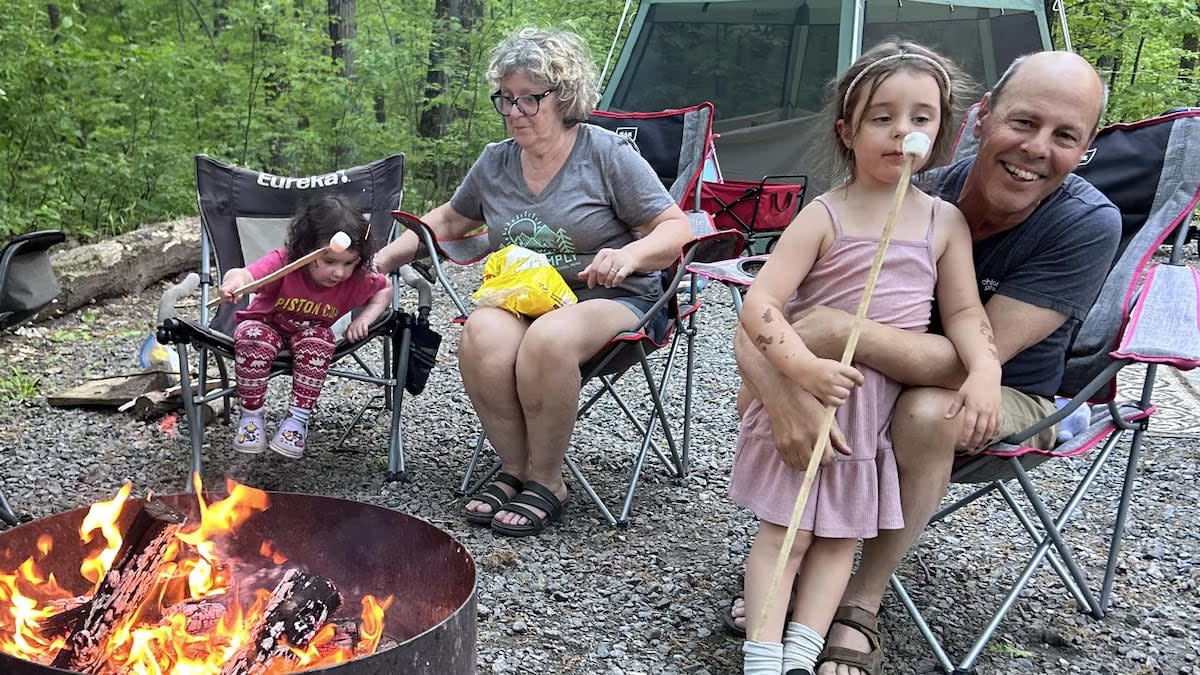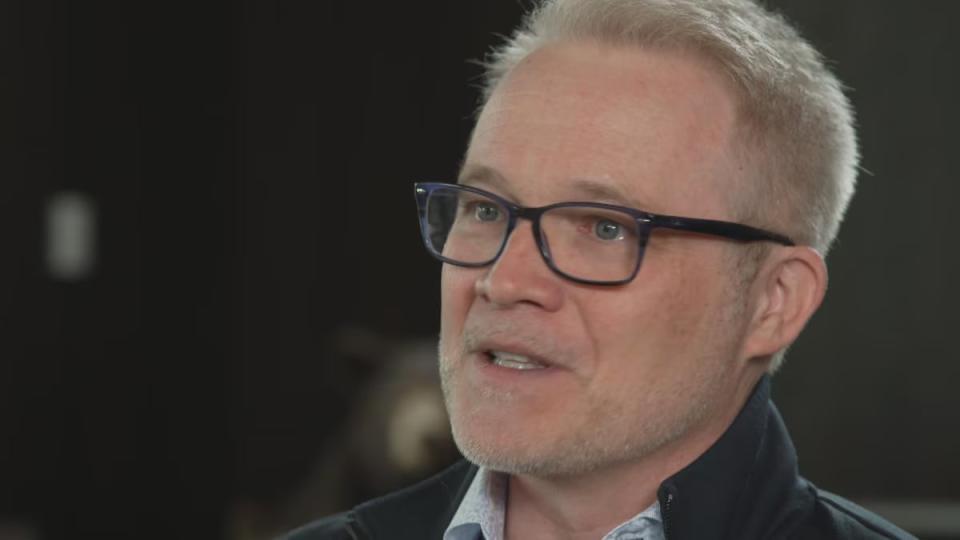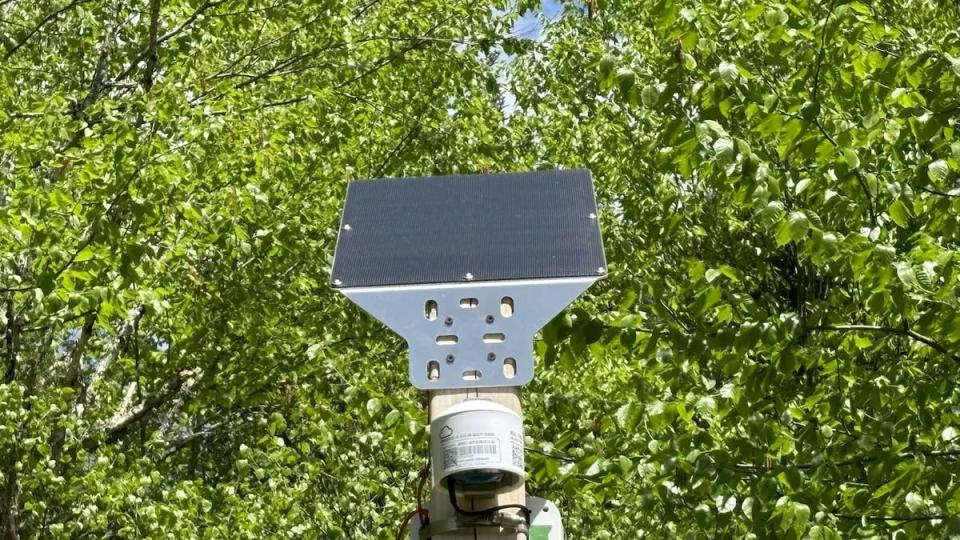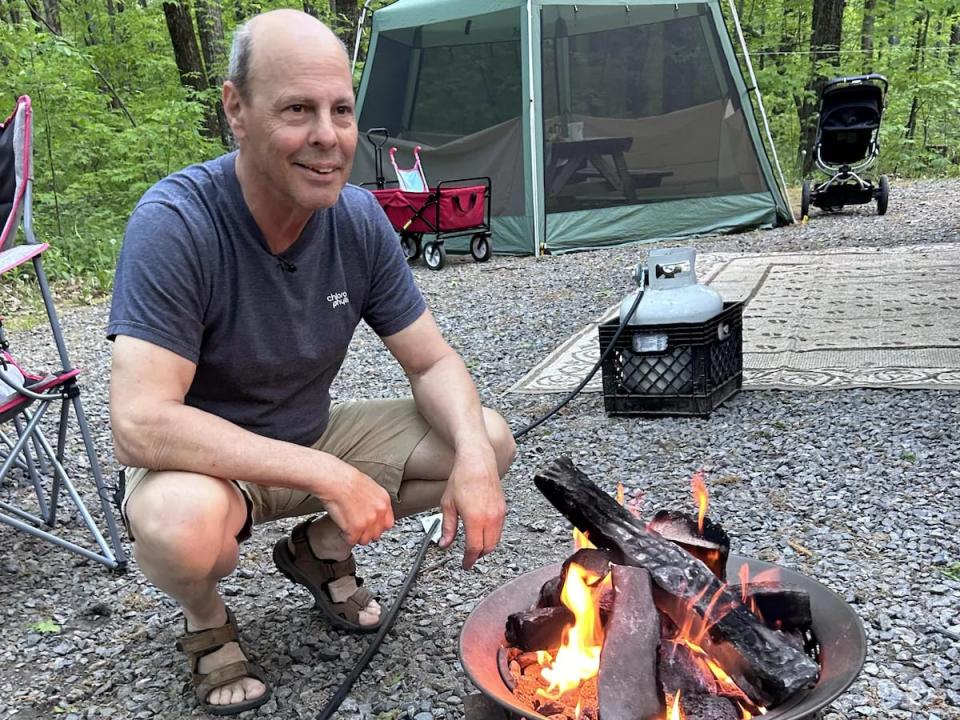SEPAQ wants visitors to be aware of health risks linked to campfires

When he was a park director in the early 2000s, Martin Soucy remembers introducing measures to reduce noise pollution and improve cohabitation between campers.
Now, as the CEO of the Société des établissements de plein air du Québec (SEPAQ) — one of the largest outdoor organizations in Canada managing 26 provincial parks and 7,500 campsites — Soucy says campfires have become a sensitive issue.
In the summer of 2023, extensive air quality sampling in a busy section of Mont-Tremblant provincial park confirmed the sometimes high presence of fine particles due to campfires.
"Campfires are part of an important camping tradition throughout North America," Soucy said."We are sensitive to customers who have health problems, and we want to show goodwill."
But he noted that banning campfires is out of the question.

Martin Soucy was appointed president and CEO of SEPAQ in January. (Radio-Canada)
Cocktail of measures
Soucy said he first wants to better inform campers about sites likely to accumulate fine particles through a continuing pilot project, which would help them choose campsites accordingly.
An isolated and windy site on the edge of a river, for example, doesn't present a risk compared to a campsite in a section of 150 sites under forest cover.
Soucy hasn't ruled out offering camping sections without campfires, but that would only be an option down the line.
"We are not there yet. We do not have enough information," he said.
He said several air quality measuring devices will be installed this summer, again in Tremblant, as well as in seven other parks to improve documentation and "better inform our visitors."

This sensor assesses ambient air quality. (Radio-Canada)
Daniel Parent, who was at the Oka provincial park with his wife and grandchildren, welcomes the idea of designating camping sections with or without campfires.
"Let them do it in certain loops like they do for dogs, for example," Parent, an experienced camper, said.
When he goes camping, Parent said he uses a portable propane fireplace with volcanic stones and faux ceramic logs.
"It becomes incandescent. It projects heat, and it doesn't emit any smoke," he said.

Parent uses a portable propane fireplace with volcanic rocks and faux ceramic logs to reduce smoke. (Davide Gentile/Radio-Canada)
But the extraction, refining, transport and combustion of fossil fuels can still harm the environment by causing the emission of greenhouse gases into the atmosphere.
There are also technologies, such as double-walled fire rings which emit less smoke, to consider, said Soucy.
"We are going to look at that, without committing in the long term to changing [the fire rings of] our 7,500 locations," he said.
SEPAQ records about eight million visits to its parks each year.
Oka, Mont-Orford, Mont-Tremblant and Jacques-Cartier are some of its parks most visited by campers.
Public health involvement
So far, SEPAQ has been relying on ambient air quality measurements taken in the summer of 2023 in a busy section of Mont-Tremblant as well as those taken in 2009 at the Yamaska provincial park.
According to the 2023 report consulted by Radio-Canada, "it was possible to make the link between the perception of odours from wood fires and the increase in concentrations of total particles, fine particles, nitrogen dioxide and of [polycyclic aromatic hydrocarbons] PAHs in ambient air."
The concentrations measured exceeded the standard of 30 micrograms per cubic metre for a period of 24 hours on a few occasions.
Dr. Philippe Robert, a public health doctor at the CIUSSS de la Capitale-Nationale, says the effects on health depend on the quantity of smoke, but also on the duration, frequency and sensitivity of people.
He said the standard isn't absolute in terms of safety, as heavy smoke during a short period of time could still cause symptoms, especially among more sensitive people.
Conversely, if the standard is exceeded over 24 hours, this does not mean that all campers will experience symptoms.
According to data from the Quebec's institute of public health (INSPQ), more than one in 10 Quebecers have been diagnosed with asthma.
For Dr. Stéphane Perron, a medical adviser at the INSPQ, "any reduction of fine particles is a good idea," but he said it requires social acceptability to protect the most vulnerable while allowing people to continue to benefit from activities they enjoy.


